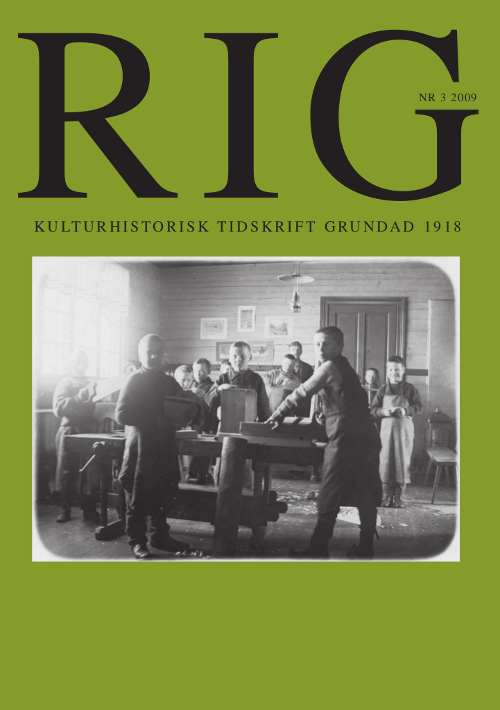Kulturell hegemoni, etnicitet och underordning. Om arbetsstugor i Norrbottens län i början av 1900-talet
Abstract
Cultural Hegemony and Subordination – arbetsstugor in the Swedish County of Norrbotten at the Beginning of the 20th Century
This article focuses on a social political, Swedish philanthropic project devoted to providing arbetsstugor (boarding-out schools) for children. This project lasted from 1903 to 1954 and aimed at encouraging poor people in the northernmost county of Sweden to improve the practical skills and behaviour of their children by placing them in arbetsstugor.
Empirically, the article is based on topics such as working conditions, ethnicity topics, and local community matters as they are described in documents and in correspondence among people engaged in the arbetstugor movement. The time period 1903–1925 is studied. There are complete files of matrons’ correspondence from 1914 to 1925.
The hierarchical cultural context of that time must be characterized as patriarchal relative to modern standards. The Swedish philanthropic elite considered the rural population as poor, who lacked will-power, and who was in urgent need of moral rearmament, education, and stimulation. The established hegemonic cultural order was based on nationalistic grounds. The authorities expected an adaptation to the value system of the arbetsstugor project, such as speaking Swedish in order to maintain what was then understood among the philanthropic elite to be a superior cultural feature even though the region was predominantly Finnishspeaking. Matrons at the arbetsstugor played a key role as executors of philanthropic childcare ideas, and they fulfilled this role without any formal education. Those matrons who acted in accordance with norms proclaimed were favoured in a patriarchy represented by men who strived for dominance and for coming to fast, resolute decisions on matters that matrons were in charge of.

